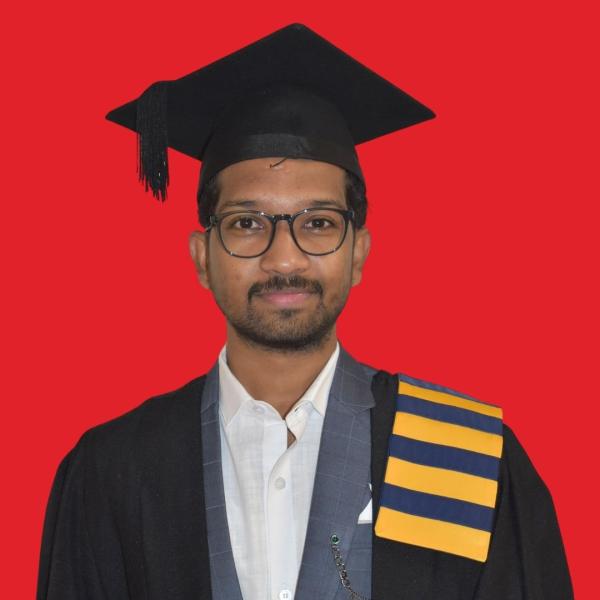Postgraduate Diploma in Science in Computing

Course Overview
Take the next step in your career and become a computing and IT specialist
This specialist Level 9 Postgraduate Diploma in Science in Computing aims to equip students with the necessary skills to pursue an active and leading role in a dynamic, evolving industry.
Why Study Computing at Griffith College?
Designed specifically to address a growing need in the industry, the Postgraduate Diploma in Science in Computing at Griffith College is a 1-1.5 year programme which aims to give students an insight into the world of academic and industrial computing research. Delivered on a full and part-time basis, as a graduate of this course, you will:
- Obtain specialist knowledge and skills essential for a career in computing or IT.
- Establish an analytical mindset necessary for independent academic and professional research.
- Gain a practical understanding of how to research and master technical issues, analyse and present your findings coherently, and document your work in a professional manner.
- Develop a team player attitude necessary to communicate problems, ideas and solutions to all levels of the industrial team.
- Build upon your knowledge of supporting topics in the many disciplines of computing.
- Fantastic job prospects in a high demand industry.
Course Highlights
- No final dissertation required
- Small class sizes
- Access to state of the art facilities
- A dedicated experienced lecturing team
- Industry guest speakers
Intake Dates
- Dublin - Full-Time - February 2026
- Dublin - Full-Time - September 2026
- Dublin - Part-Time - September 2026
- Dublin - Full-Time - February 2027
What Our Graduates Say

I enjoyed the experience of being at Griffith College. The faculty feel very experienced and always ready to help with anything you might need. I am proud that I am graduating from this College.
This helped me with gaining real-world experience because before taking part in this Postgraduate Diploma, I felt lacking in a few areas.
PGDip in Science in Computing

The main thing I enjoyed is how the classes are conducted. They are very comprehensive, and the lecturers are very clear about what they are teaching and what they want us to learn.
Everything we have learned feels very current and up-to-date. I would definitely recommend the Postgraduate Diploma in Science in Computing to anyone.
PGDip in Science in Computing
Course Details
Duration: Full-time 1 year or part-time 1.5 years
Part-time programme:
This course has been created in consultation with leading industry partners. At Griffith College, we aim to be flexible to suit your personal and professional needs. Our part-time programme is usually delivered over three or four semesters.
Stage One
This module introduces the principles and practices of data mining, from preprocessing and feature engineering to advanced tasks like classification, clustering, and anomaly detection. Learners gain hands-on experience with popular tools, explore ethical considerations such as fairness and privacy, and engage with the latest research and real-world applications to develop practical, responsible data mining skills.
This module aims to introduce learners to mobile application development. Learners explore the differences in the computation model between desktop and mobile. Learners are also exposed to the reduced capabilities of this hardware and assess how this impacts their application development. They are also introduced to the sensors available on these devices and how they can be exploited. Learners evaluate advanced topics in mobile applications including different form factors (including, smartwatch, tv, etc.), VR and AR applications, integration with the web and cloud.
This module introduces concurrency and parallel programming, covering threading, memory models, synchronisation, and solutions to challenges like deadlocks. Learners explore distributed systems, including architectures, consensus algorithms, and the CAP theorem, as well as applications such as sorting, matrix operations, and image processing. Emerging topics like cloud computing, distributed machine learning, and edge computing are integrated, equipping students to design scalable, fault-tolerant, and efficient systems.
This module aims to significantly deepen the learners’ research skills, both in relation to their module related assignments and later in the completion of their major dissertation/dissertation by practice. Specifically, it extends their abilities as self-directed learners by equipping them with the appropriate vocabulary for reflecting on, critiquing, and evaluating their own work and that of others. Throughout the module, they are required to engage in a number of research methodologies and current research issues and trends in computing science. The module also addresses the need for good project management skills and techniques for the successful delivery of any project.
Stage Two
This module develops a strong understanding of the principles, technologies, and architectures behind modern data communications networks. Learners design and implement network configurations, assess performance, and explore cutting-edge innovations and emerging trends. The module also covers network security, examining common vulnerabilities and applying protective measures such as firewalls, anti-malware tools, and other defences to safeguard data and maintain network integrity.
The module aims to introduce learners to Agile Software Development practices. Learners are introduced to the Agile Manifesto and methods and, through practical agile software development, create a software artefact. Learners work in groups to realise a software solution to a problem proposed by a customer. They learn to work with the customer at all stages creating user stories, designing sprints, and reviewing sprints.
The module aims to introduce learners to cloud computing infrastructure. Learners evaluate state-of-the-art solutions offered by major cloud providers. Learners also explore important topics of research around the cloud such as energy optimisation, and the efforts to introduce standardisation in the cloud to give them an appreciation for the current and future direction of cloud-based services. Learners are given the opportunity to develop applications for a cloud-based platform and evaluate the differences between normal computation and a cloud-based model.
This module reviews the essentials of artificial neural networks before exploring advanced architectures such as CNNs, RNNs, LSTMs, transformers, and large language models. Learners study autoencoders, GANs, and reinforcement learning techniques like Q-learning, with a strong emphasis on practical implementation using popular tools. Recent developments in deep learning and generative AI are examined through hands-on exercises and analysis of cutting-edge research.
Timetables
Timetables will be made available closer to the course start date.
How to Apply
Entry Requirements
Applicants should hold an undergraduate honours degree 2:2 or above in computing or related area. Alternatively, applicants with a 2:2 Higher Diploma in Science in Computing or related area are eligible to apply.
English Language
Griffith College is accepting the online Duolingo English Test (DET) as valid proof of English proficiency. For more information, please visit here.
How to Apply
To apply for the Postgraduate Diploma in Computing, please submit an online application
A member of our admissions team will then be in contact with you to request to following documents:
- A copy of your undergraduate degree transcripts
- A copy of your passport or driving licence
Fees
For purposes of fee calculation, residence is counted from the time of the application.
Please note that not all study modes may be offered at all times. For confirmation, refer to the intake dates in the Overview tab.
Tuition Fees
Study Mode: Full-Time
Dublin: EUR 6,800.00
Study Mode: Part-Time
Dublin: EUR 6,800.00
Study Mode: Full-Time
Please refer to the Irish/EU Living Abroad Fees.
Study Mode: Full-Time
Please refer to our Non-EU Tuition Fees section.
Non-EU students: a Student Services and Administration fee of EUR200 is payable each academic year in addition to the fees quoted below.
An Academic Administration Fee of €250 is payable each September at the start of term. For students starting in the January/February term, €125 is payable in February, and then €250 will be payable each September from then onwards.
A 2% Learner Protection Charge is applicable each academic year in addition to the fees quoted. The fees above relate to Year 1 fees only.
Flexible payment options
Students wishing to pay their fees monthly may avail of our direct debit scheme. Please view our Fees information page for more information and assistance.
Sponsorship
Is your company paying for your course?
They will need to complete a Griffith College Sponsorship Form and send this to the Student Fees Office:
- Post: Student Fees, Griffith College Dublin, South Circular Road, Dublin 8
- Email: [email protected]
2% Learner Protection Charge
All QQI accredited programmes of education and training of 3 months or longer duration are covered by arrangements under section 65 (4) of the Qualifications and Quality Assurance (Education and Training) Act 2012 whereby, in the event of the provider ceasing to provide the programme for any reason, enrolled learners may transfer to a similar programme at another provider, or, in the event that this is not practicable, the fees most recently paid will be refunded.
QQI Award Fee
Please note that a QQI Award Fee applies in the final year of all QQI courses. To find the relevant fee for your course level, please see the Fees page.
Progression
Academic Progression
Graduates of the Postgraduate Diploma in Science in Computing course have the option to continue their studies in Griffith College have the option of progressing to the MSc in Computing
Career Progression
Graduates of the Postgraduate Diploma in Science in Computing will find opportunities as technical applications developers and consultants, systems analysts, database administrators, network managers and other leading computing science roles, in academia and also in industry research and development roles.

